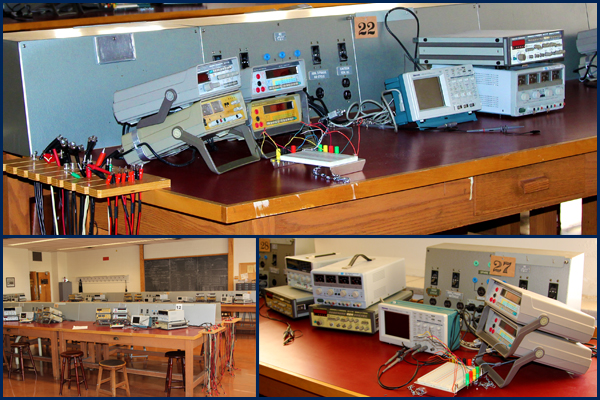DISCOVER A REWARDING CAREER IN COMPUTER ENGINEERING
Computer Engineering is a discipline that embodies the science and technology of design, construction, implementation, and maintenance of software and hardware components of modern computing systems, computer-controlled equipment, and networks of intelligent devices. Computer engineers are involved in the design of computer-based systems to address general public needs as well as highly specialized and specific application needs. As such, computer engineers work in almost all industries and government agencies. They design various services and products that solve many societal problems and serve people's needs. These products and services range from high-tech special computer systems embedded in airplanes, cars, and mobile phones to distributed computing environments (local and wide area networks, wireless networks, internets, intranets), and data centers for online services.
Computer Engineering graduates are in high demand locally in Saudi Arabia, regionally in the Middle East, and internationally worldwide. The Kingdom of Saudi Arabia has focused on computer technology and its utilization as one of the fundamental tools to modernize its industry to cope with advances in modern technology. The Computer Engineering Department is well-positioned to contribute to achieving the objectives of Vision 2030 by having programs that prepare highly qualified computer engineers who are capable of mastering the recent advances in such a rapidly growing field and addressing the job market needs, graduates that can lead the digital transformation and create businesses to contribute to the economy of Saudi Arabia.
The
Computer Engineering Department offers a strong undergraduate educational
program leading to a Bachelor of Science (BS) degree in Computer Engineering
(ABET Accredited) and three CX Programs: CX Computer Networks, CX Cloud
Computing, and CX Internet of Things. It also has well-established graduate
programs leading to a Master of Science (MS) degree in Computer Engineering, a
Master of Science (MS) degree in Computer Networks, and a PhD program in
Computer Engineering. The department also has three professional programs:
MX in Computer Networks (CNWs), MX in High Performance and Cloud
Computing (HPCC), and MX in the Internet of Things and Embedded Systems (IoTES).
Research & Academic Activity Statistics 1986 to 2024
12,903
Citations
55
h-index
263
Conference Contribution
489
Article



